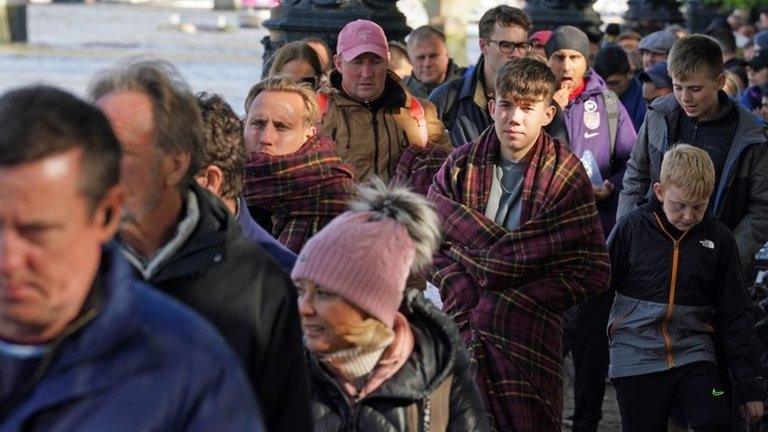Queen's lying-in-state: China blocked from Westminster Hall
- Published
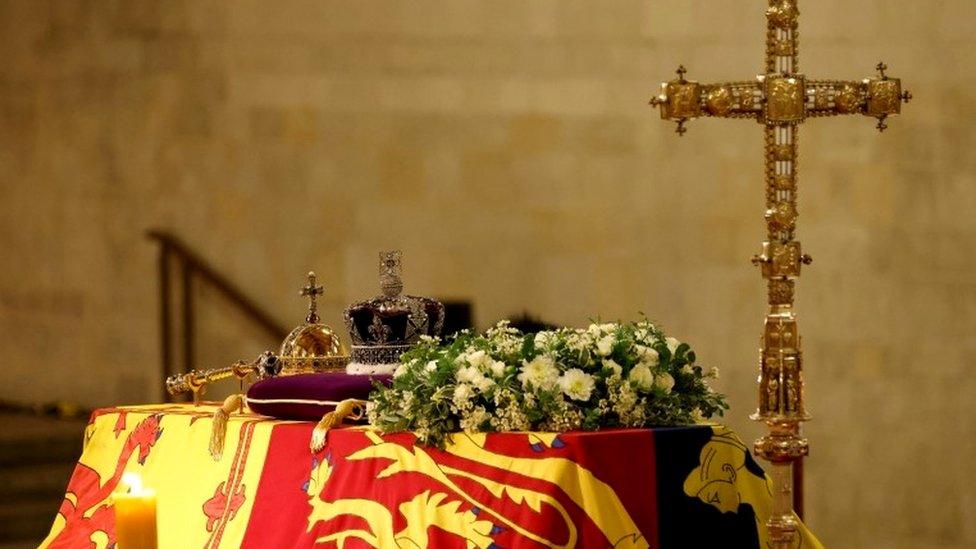
A Chinese government delegation has been banned from attending the lying-in-state of Queen Elizabeth II, according to parliamentary sources.
Commons Speaker Sir Lindsay Hoyle is understood to have refused a request for access over Chinese sanctions against five MPs and two peers.
Queen Elizabeth will lie in state in Westminster Hall until she is buried on Monday.
China says it is still considering whether to attend the funeral.
A high-ranking official from Beijing had been expected to be amongst the guests, but a Chinese foreign ministry spokeswoman said earlier on Friday that no decision had been made.
The spokeswoman, Mao Ning, said they had not seen reports about the Westminster Hall ban, which first emerged on the Politico website., external
But she added: "As a host, the UK is certainly familiar with diplomatic protocols and proper manners of receiving guests."
Sir Lindsay told the BBC: "It's better I don't comment because everything has security implications. It would be wrong of me to do so."
Downing Street declined to comment, with a spokesperson saying "admission to Parliament is a matter for Parliament".
Last year, China imposed travel bans and asset freezes on nine Britons - including seven parliamentarians - for accusing Beijing of mistreating Uyghur Muslims.
That led to China's ambassador to the UK being banned from Parliament - a move which has now been extended to a delegation that wanted to pay their respects at Queen Elizabeth's lying-in-state.
UK-China relations are already strained and this ban is unlikely to help.
The Queen's coffin is currently lying in state in Westminster Hall, part of the parliamentary estate, before Monday's state funeral at nearby Westminster Abbey.
The funeral will be one of the biggest diplomatic events of recent years, with some 500 heads of state and foreign dignitaries expected to attend, including US President Joe Biden.
A Downing Street spokesman said it was a convention that countries with which the UK has diplomatic relations should be invited to state funerals.
Syria, Venezuela, Afghanistan, Myanmar, Russia and Belarus have not been invited - whilst Iran, North Korea and Nicaragua have been asked to only send a senior diplomat.
China's President Xi Jinping is on the guest list but is not thought likely to attend.
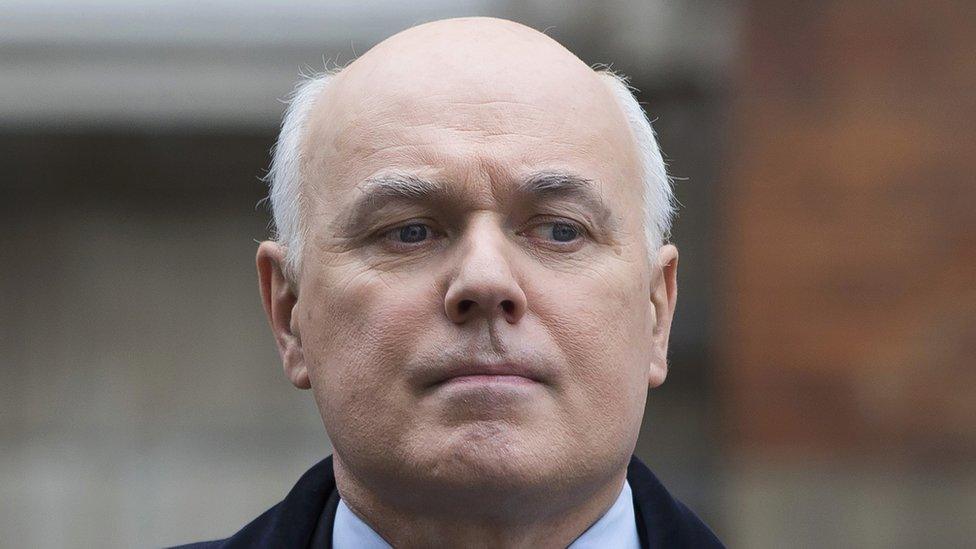
Former Tory leader Sir Iain Duncan Smith is among UK parliamentarians to be sanctioned by China
According to the parliamentary rule book Erskine May, control of Westminster Hall is shared between the Lord Great Chamberlain - who is appointed by the monarch - and the speakers of both the Commons and the Lords.
There is no specific mention regarding control of access for an occasion such as a lying-in-state, but when it comes to "invitations to foreign dignitaries to address both Houses in Westminster Hall" these are "ordinarily" issued by the agreement of all three.
Last September, Sir Lindsay and House of Lords Speaker Lord McFall told China's ambassador to the UK he could not come to Parliament because of Beijing's sanctions.
At the time, that ban was criticised by the Chinese government as "despicable and cowardly".
On Thursday, the group of seven MPs and peers, including former Tory ministers Sir Iain Duncan Smith and Tim Loughton, urged the Foreign Secretary to withdraw an invitation to President Xi of China to attend the Queen's funeral.
In a letter, they said it would be "wholly inappropriate" for the Chinese government to be represented, given its human rights record.
Sir Iain, one of the five MPs placed under Chinese sanctions last year, said he would like to "applaud" the Commons Speaker for banning the Chinese delegation from Parliament.
"He's standing firm, and I think the government should have stood firm as well," he told BBC News.
Several Western countries have imposed sanctions on officials in China following rights abuse allegations against the mostly Muslim Uyghur minority group.
China has detained Uyghurs at camps in the north-west region of Xinjiang, where allegations of torture, forced labour and sexual abuse have emerged.
It has denied the allegations of abuse, claiming the camps are "re-education" facilities used to combat terrorism.
- Published15 September 2022
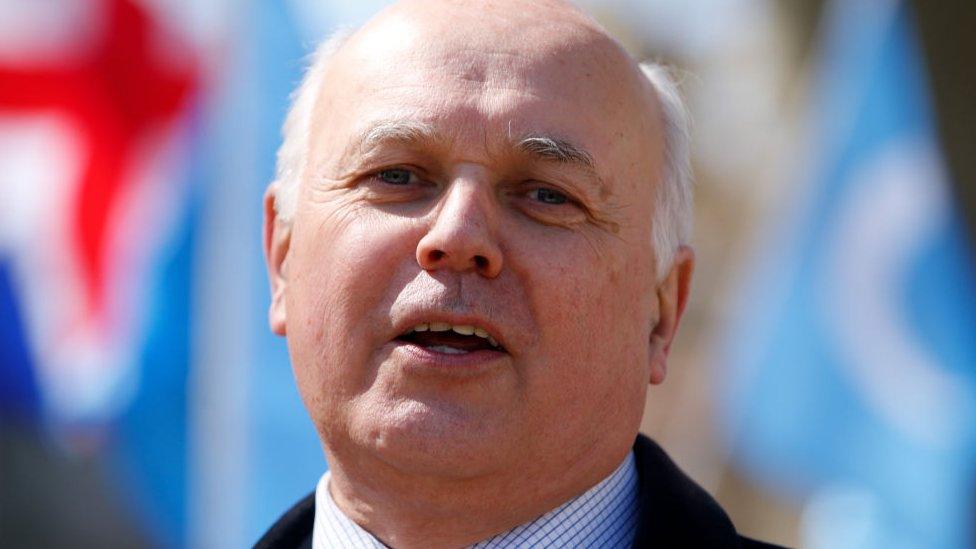
- Published26 March 2021
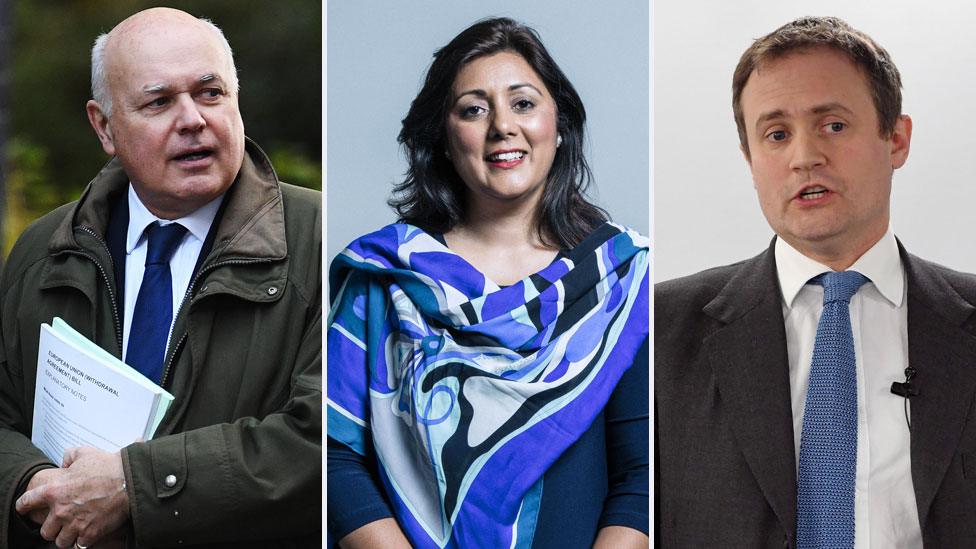
- Published19 September 2022
